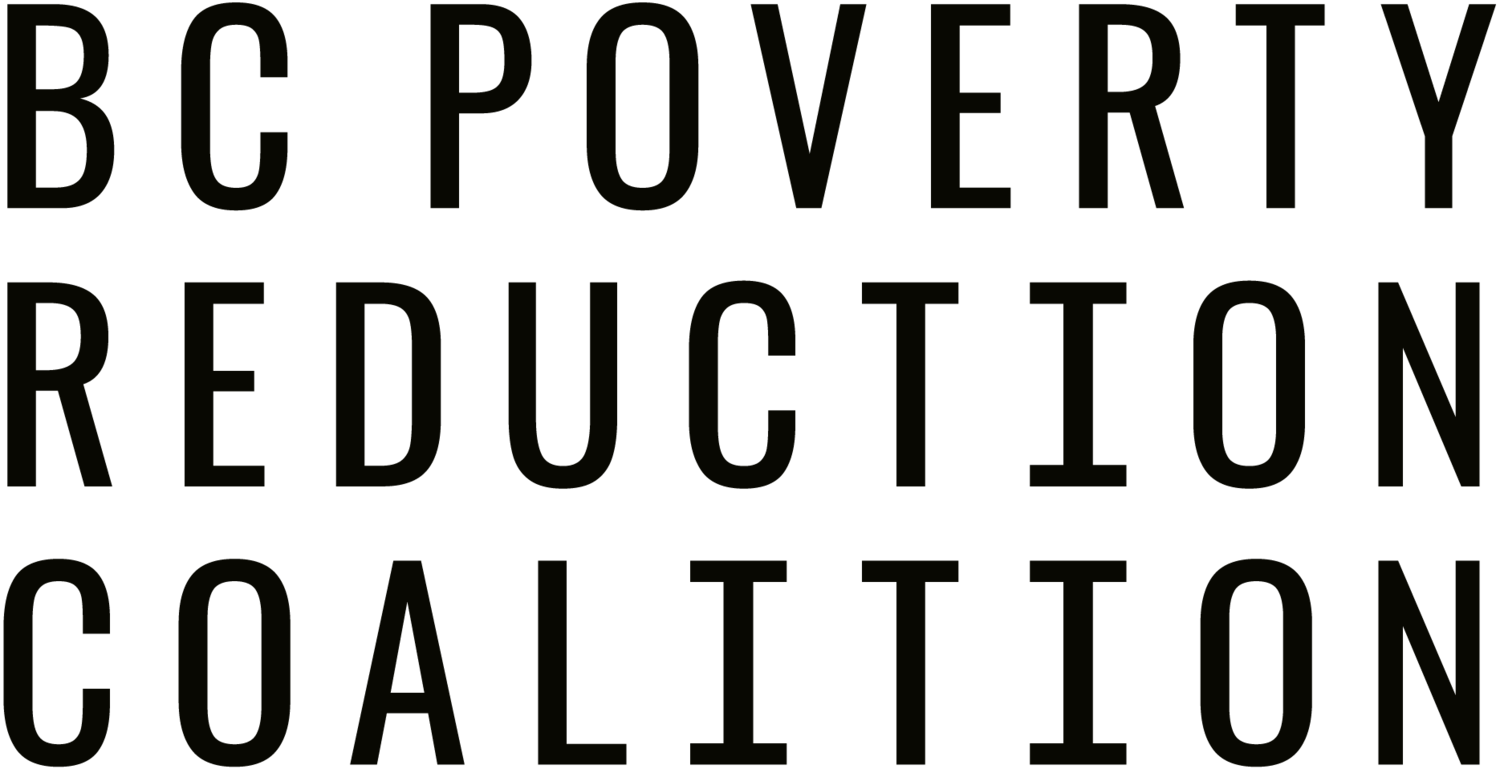To Tackle Rising Costs of Living, Let’s Move on Climate Solutions
For real change on both, we must see how they’re connected.
By Rowan Burdge (BC Poverty Reduction Coalition) & Emiko Newman (BC Climate Emergency Campaign)
Originally published on the Tyee on November 29, 2023
If you live in B.C., you know our province boasts the most unaffordable housing in the country. You know that costs of transportation, groceries and general living expenses are only going up. Affordability is understandably top of mind for many. Nearly two-thirds of young people in B.C. identify the cost of living as their top concern.
Recognizing this, governments seem to prioritize the affordability crisis ahead of other issues, such as the climate crisis.
However, presenting issues of affordability as separate from and in direct competition with investment in climate action is harmful. It reflects an inaccurate understanding of what climate action can achieve.
Also worrying are some mainstream narratives we’ve observed in media, social networks and public discourse that suggest acting on climate will only hurt the economy, or that climate investment must wait until affordability improves.
These narratives present a false dichotomy. Investing in affordability and climate action must happen simultaneously. As leaders with the BC Poverty Reduction Coalition and BC Climate Emergency Campaign, we know that such investment can be mutually beneficial. Both of us are writing from organizations that approach climate justice from a systemic, intersectional and upstream lens.
The BC Poverty Reduction Coalition hears from folks experiencing poverty with lived experiences on the frontlines of extreme weather, and climate justice is a major part of our policy platform. The BC Climate Emergency Campaign also focuses on integrating climate justice into the provincial government’s climate plan, with the aim of creating more just, equitable policy that takes the climate emergency seriously.
We both see the connections between poverty and climate, and the need for transformative systems changes at the policy level.
Connecting the dots between affordability and climate
The cost of essential goods has increased dramatically over the past few years. This has impacted people’s ability to afford food, transportation and housing. But the provincial government’s response has been disappointing.
Rather than targeting the culprits (namely industry and profit-hungry corporations) by addressing price-gouging or implementing stricter regulations, the government has introduced one-off measures such as a gas subsidy.
These quick fixes do not take a targeted or equity-based approach to address the impacts of rising costs. They are woefully inadequate in addressing a systemic, deeply rooted affordability crisis.
The singular focus on affordability distracts from addressing urgent climate change interventions while British Columbians face its massive, tangible impacts.
Between the 2021 heat dome, the atmospheric rivers, catastrophic fires or other disasters of the past few years, most people in B.C. have now been directly or indirectly impacted by extreme weather. Even if they’re not directly impacted, they are seeing the economic ripples reflected in insurance and food costs.
How are the affordability crisis and climate crisis connected? The atmospheric rivers in 2021 severely impacted our food systems and infrastructure. Migrant workers were displaced and disrupted by the fires this year, affecting harvesting and farms.
Extreme weather impacts housing and homelessness by destroying property and displacing people from their homes. Unhoused communities also face disproportionate harm from extreme weather, as they lack adequate shelter and protection.
The number of people unable to afford adequate housing is only going up.
Climate disasters also shed light on the inherent injustices built into our immigration system, notably the Temporary Foreign Workers Program and its limitations on workers’ rights. From this, we know that climate justice is also labour justice.
Precarious work is on the rise, creating more industries without worker rights or protections, while workers in B.C. are impacted by extreme weather.
A warming world affects all aspects of our lives. It is time to remove the silos that create false distinctions between the crises we face.
The cost of doing nothing
There are massive costs to climate delay. The B.C. government’s short-term policy focus has not been expansive, or proactive, and B.C. residents are bearing the consequences and costs. We risk great human suffering by continuing on a trajectory that sees affordability and climate catastrophe as disconnected crises.
B.C. residents who are marginalized or already experience barriers face disproportionate impacts from extreme weather and climate change. These groups are also more deeply affected by affordability issues and face compounded impacts from both crises.
Additionally, income and disability assistance rates remain well below the poverty line and have not been raised in accordance with the rapidly increasing costs of essentials, exacerbating poverty for many.
Meanwhile, real solutions for poverty or food security remain out of reach. Food bank access has tripled in recent years as basic costs have increased, and donations haven’t kept up with demand.
One of the most common justifications for government inaction is that climate spending would hurt the economy. The real concern should be the massive fiscal consequences of not acting now.
A recent estimate shows that around the world, the “climate crisis is costing $16 million an hour in extreme weather damage.” Research in Canada demonstrates that by the end of the century, our economy could take a $5.5 trillion hit if we fail to act on climate. Neglecting to spend now will lead to outrageous costs later.
The political newsletter British Columbia Today recently cited Premier David Eby as stating:
From British Columbia’s perspective, the big impact on taxpayers has been [that] we spent a billion dollars fighting forest fires this year. We will spend well in excess of a billion dollars addressing atmospheric river floods in the Fraser Valley. We have massive investments… to prevent flooding around communities, to prevent forest fires burning down communities. It’s devastating, climate-change-wise, and no province should expect to be exempt from those kinds of climate impacts.
Continued investment in short-term, reactive economic policies coupled with a failure to prioritize effective climate policy will result in the government and taxpayers suffering under the burden of escalating disaster recovery in the future.
A warming planet will exacerbate and compound all the crises we currently face. It will lead to ever higher food prices and shortages as droughts worsen and crops die. As harmful activities such as fracking continue, we will see water shortages and a poisoned water supply. We will witness human health crises as vector-borne diseases spread and polluted air and dangerous temperatures make everyday life riskier.
Strategic solutions are possible
The B.C. government needs to shift from its historically retroactive, costly disaster response towards proactive investment in systemic solutions and climate mitigation policies and actions.
Climate policy does not have to make life unaffordable and can, in fact, lead to win-win-win solutions.
But for government policies to address affordability and the climate crisis, they need to be systemic, targeted and centred on equity.
For example, governments can invest in free or affordable public transit to lower barriers. Subsidies for low and zero-emission appliances, technology, heating, e-bikes and other transportation options should prioritize low-income households and individuals.
Homes warmed and cooled with a heat pump will see substantial savings in the long-term and cleaner indoor air quality. Research shows that effective policy can lower emissions and address housing affordability at the same time.
The more we help lower-income households move away from fossil-fuel home heating and transportation, the more we free them from the roller-coaster of spiralling oil and gas prices, much of which are fueling record profits for fossil fuel corporations.
Prioritizing effective climate action would benefit the economy by reducing future costs. A socially just transition, creating sustainable jobs and protections for British Columbians, for instance, would create a much more resilient and sustainable long-term future for many.
If cities or municipalities are nervous about high climate spending, the “Cost of Doing Nothing” toolbox is a useful resource for justifying those costs.
Moving from words to action
Everyone wants to feel confident that they will be able to afford life in B.C. in the coming years. With less than a year remaining before the fall 2024 provincial election campaign, we expect to continue hearing about issues of affordability.
We call on the provincial government to meet this critical moment and invest in meaningful, equitable, justice-based policies and plans that address the climate emergency while making life more affordable.
We implore voters to press politicians for real solutions and to make the connections between climate, affordability and the quality of life we want to see for our families and communities. Substantial, systemic and proactive changes are necessary now to create a future we can all celebrate and that will benefit us all.
Climate justice means full social justice for communities, equitable economic survival and resilience, access to clean land, air and water, and protection from the impacts of climate change that leave no community member behind. Prioritizing Indigenous rights and sovereignty is also one of the most effective combatants of climate change.
Last week, provincial environment minister George Heyman noted: “People in B.C. are also concerned about the very real costs of the climate crisis… we are determined to reduce costs for people while continuing to move forward on climate action.”
Let’s see these words turned into action.



